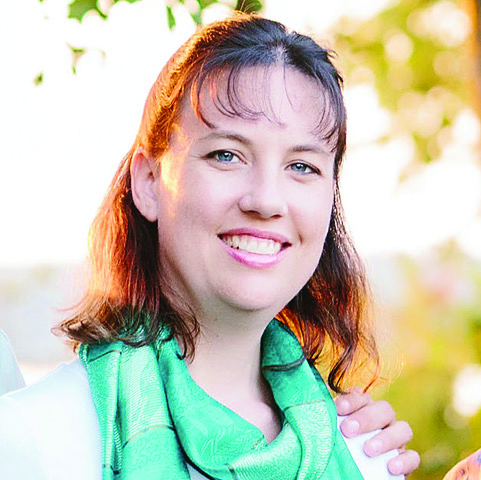
5 minute read
Not My Money
I don’t know what time the phone rang that night, but it was late. My husband, Greg, listened intently as the local Adventist pastor explained that the Thai immigration police had raided an apartment building housing some 100 asylum seekers. Twenty of them had escaped and desperately needed refuge. The pastor was asking whether we could help.
The timing couldn’t be worse for Greg and me. We were setting up for our annual mission conference, and there was still much to do to be ready when the meetings began in the morning. What were we to do? We had a guesthouse attached to our home on the mission compound, but it wasn’t adequate to accommodate 20 people. We excused ourselves due to our busyness and promised to pray that they would find help.
During the next three days, we wondered what happened to those people. Then, we heard that another asylum-seeking family had invited the entire group to stay with them. We were shocked and felt somewhat rebuked because we knew the family was living in a small one-room apartment half the size of our guest house.
Fearing the threat of arrest by the immigration police, the family kept the curtains and doors closed and didn’t allow anyone to leave the apartment. They urgently needed supplies, so we bought and delivered groceries discreetly for the next two weeks until the asylum seekers found new housing.
Then we learned that even though the guests had left, the host family’s needs hadn’t. Despite their status with the United Nations High Commission for Refugees (UNHCR), they were considered illegal immigrants and, therefore, unable to work. Having no income, they had sold everything of value just to pay rent. So, we continued helping them, eventually taking responsibility for all their financial needs, including paying their children’s tuition. Each time we provided financial assistance, our friends would exclaim, “You are doing so much for us, and we are so thankful. But there is no way we can ever repay you.”
Their words caused me angst. While somewhat happy to help them, I was struggling deep inside. It’s one thing to help someone once or twice. I could even see helping for a few months in extreme cases. However, the asylum process would take seven to eight years.
I felt terrible about my attitude. I knew that even though they were professionals capable of supporting themselves, they couldn’t. I also knew that they had no other options. They couldn’t return home because they’d probably be killed. They couldn’t travel to another country because their passports had expired, and their embassy wouldn’t renew them for asylum seekers. They were truly stuck.
I also struggled with the change our support was causing in our relationship with this family. In their shame-honor-oriented culture, our help meant we were indebting them to us, reshaping our peer friendships into a patron-client relationship. It was hurting their dignity.
So, I began praying that God would show me how to receive their gratitude in a way that restored their self-respect and rebalanced our friendship. I also asked Him to help me feel at peace with a long-term financial commitment if that was what He asked us to do.
God’s answer came repeatedly in a strong impression: “Tell them the money belongs to Me.” I was confused by His instruction, but as I continued to seek His guidance, He taught me something important about stewardship.
I had thought of stewardship mostly in terms of returning a 10 percent tithe to God. Now, He drew my attention to Jesus’ parable of the talents. Carefully reviewing the story, I realized that the servants were accountable to the owner for 100 percent of the money he gave them. The owner fully expected and trusted that the stewards would act as agents on his behalf, investing the talents as He would. Each decision they made was expected to reflect the character of the master.
The idea that all the money in our bank account belonged to God and that He was entrusting it to us to use according to His will and character was a paradigm shift for me. It took off all the pressure of having to decide whether a cause was worthy or not. Instead, I began asking, “How does God want me to use His resources to respond to this situation?” This new perspective freed me to be more generous.
It also rebalanced our relationship with our friends. The next time they poured out their thanks, I told them what God told me: “Friends, the money isn’t ours. It’s God’s. He would want us to help you in this difficult situation.” Saying this restored our relationship as equals and put God in the rightful place as patron for their family and ours.
I also experienced another blessing. Each month we helped our friends, we discovered that our paychecks seemed to stretch to cover all our needs as well. Proverbs 19:17 says, “He who has pity on the poor lends to the Lord, and He will pay back what he has given” (NKJV).
I’m so thankful for this experience. The lessons I learned continue to guide me as I encounter people with needs. As a steward of God’s resources, my responsibility is to use them as He prompts me. And each prompting is a precious opportunity to reveal His generous, compassionate heart.
Your generous and systematic mission offerings help support the ministry of hundreds of missionaries. Please give at AdventistMission.org/donate.
Check out m360.tv/missionary for more stories about missionaries.

Amy Whitsett enjoyed living and working in Southeast Asia as a missionary for 16 years. She now works for the Institute of World Mission, helping to prepare and train missionaries for cross-cultural service.










